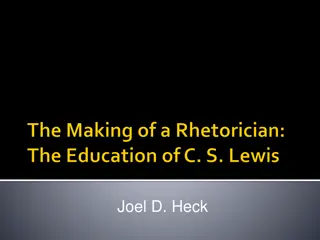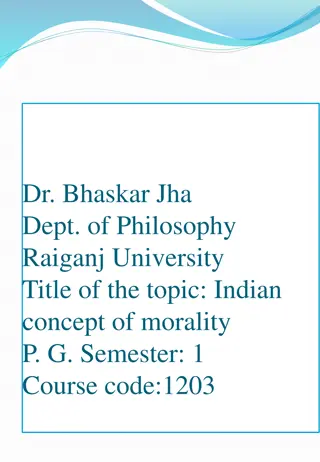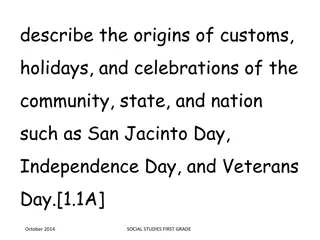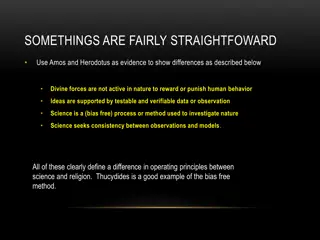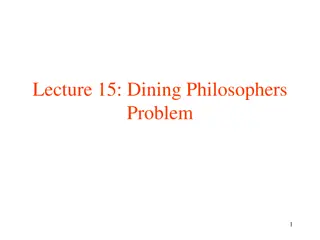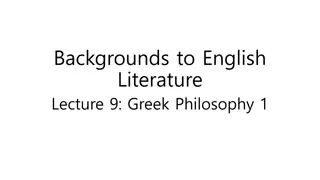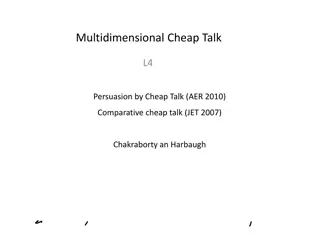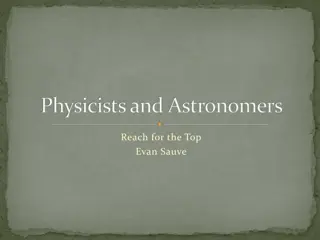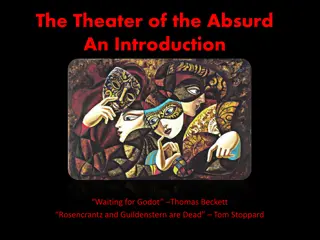Influential Philosophers Through Time
Influential philosophers from different periods in history, such as Confucius from ancient China, Socrates and Plato from ancient Greece, Aristotle, Paul of Tarsus, René Descartes, and John Locke. These thinkers contributed groundbreaking ideas to philosophy and society, shaping the way we understand the world today.
Download Presentation

Please find below an Image/Link to download the presentation.
The content on the website is provided AS IS for your information and personal use only. It may not be sold, licensed, or shared on other websites without obtaining consent from the author.If you encounter any issues during the download, it is possible that the publisher has removed the file from their server.
You are allowed to download the files provided on this website for personal or commercial use, subject to the condition that they are used lawfully. All files are the property of their respective owners.
The content on the website is provided AS IS for your information and personal use only. It may not be sold, licensed, or shared on other websites without obtaining consent from the author.
E N D
Presentation Transcript
CONFUCIUS I was born circa 551 BC in Lu (ancient China). Though it is argued that the Greeks formularized the idea of democracy, it is possible that I came up with the idea first. I defended the idea of an Emperor, but believed that his power should be limited. Any ruler who abuses is a tyrant. I am the most influential philosopher of the Eastern world of all time.
SOCRATES I was born circa 470 BC in Athens, Greece. My work can be seen through plays by Aristophanes and writings by Xenophon. They were my students. Much more of my work, however, can be seen in the Dialogues written by Plato. A form of inquiry and discussion between individuals based on asking and answering questions to stimulate critical thinking and to illuminate ideas is named after me.
PLATO I was born circa 428 BC in Athens, Greece. I believed that the universe has a creator and that we are less real than the creator, being only ideas he (or it) had. I believed that the material world is a collection of failed attempts to achieve the ideal concepts behind what we interact with. I opened the world s first school of higher education, the Academy of Athens. I preserved some of Socrates ideas through my writings. Socrates did not write.
ARISTOTLE I was born in 384 BC in Stagira, Chalcidice (Greece). I joined the Academy of Athens when I was eighteen and stayed there until I was thirty- seven (shortly after Plato s death). I organized animals and plants into categories and types. I was hired to tutor Alexander the Great. This money allowed me to establish a library. I am considered the father of Western Philosophy.
PAUL OF TARSUS I was born 5 AD in Tarsus, Cilicia (now Turkey). I am a Christian apostle, though not one of the Twelve Apostles. Fourteen of the twenty-seven books in the New Testament have traditionally been attributed to me. Central to my teaching is the idea of grace, that no one can achieve perfection, so we are aware of this, humble, and ask forgiveness and support anyway.
REN DESCARTES I was March 31st, 1596 in La Haye en Touraine, Kingdom of France. I am well-known for my work in both philosophy and mathematics. I am the father of modern philosophy. I said I think, therefore I am, as a way of trying to prove something: that I can know that I exist.
JOHN LOCKE I was born August 29th, 1632. Along with Thomas Jefferson, I am responsible for not having a literal titled nobility in America. I believe in three natural rights : life, liberty and lineage. I am considered the father of Liberalism.
FREDERICH NIETZSCHE I was born October 15, 1844 in Prussia. Son of a clergyman who died when I was young, I at first intended to be a clergyman but then became one of the world s most famous atheists. I argued that Christianity made one weak by encouraging compassion and generosity. I wrote a book entitled Beyond Good and Evil, which argued that with no God, there is no one to decide an absolute standard for what is good and what is evil, so it s really just all about being strong and independent. I was weak and sickly most of my life, and died a slow, painful, debilitated, deranged death, having lost all of my faculties. I famously said God is dead, and we have killed him.
JUDITH BUTLER I was born February 24, 1956 in Cleveland, Ohio. I am responsible for popularizing the theory that biological sex and lived gender are separate concepts. I present this in my 1990 book Gender Trouble: Feminism and the Subversion of Identity. I believe that we don t present masculine or feminine behaviour and appearance because of our hormones or our genetics, but because society gives us a script to perform, and we are trained to follow that script.




